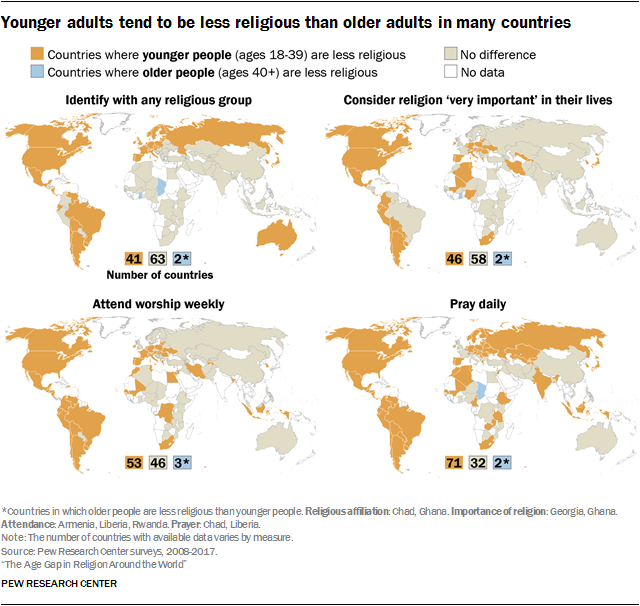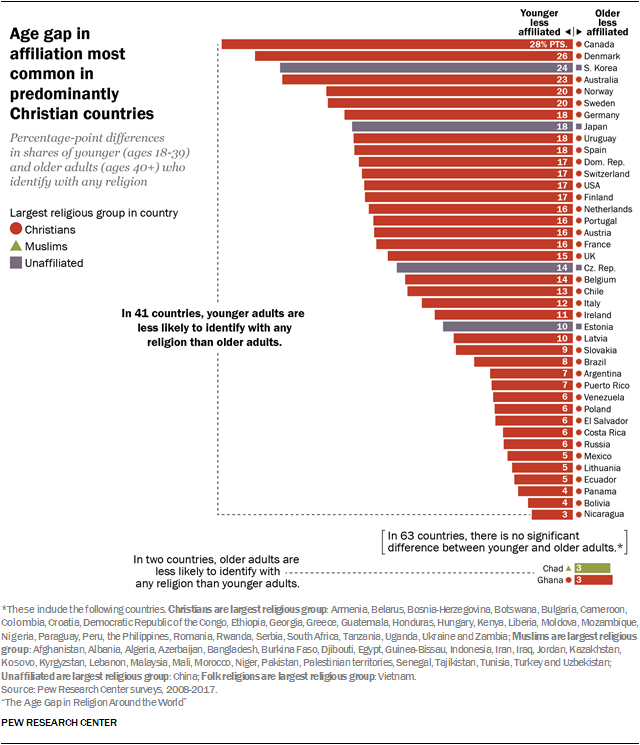
We participate in a congregation where there are often 12 to 15 kids at the front for Children's Time, including two of our grandchildren. It's good to see that there is a growing number of younger families, although teens are an endangered species. I figure it is no small part due to the innovative, faith-full minister, and the welcoming "young at heart" group of seniors which makes up most of the Sunday morning gang. They really seem to delight in the children and how worship is shaped to include them. I appreciate that they love to laugh.
The United Church has gone from being a mainline denomination to what some call old-line, with an aging and shrinking membership. We tend to have "Evangelical Envy" wishing we could attract the younger crowd in some of those congregations.

If misery loves company, this old-line trend is now true around the world, including in the United States, which always seemed more religious than Canada. Younger people in many countries worship less, pray less, and not as likely to believe in God. According to Pew Research Center: Religion and Public Life:
In the United States, religious congregations have been graying for decades, and young adults are now much less religious than their elders. Recent surveys have found that younger adults are far less likely than older generations to identify with a religion, believe in God or engage in a variety of religious practices.
But this is not solely an American phenomenon: Lower religious observance among younger adults is common around the world, according to a new analysis of Pew Research Center surveys conducted in more than 100 countries and territories over the last decade.
Although the age gap in religious commitment is larger in some nations than in others, it occurs in many different economic and social contexts – in developing countries as well as advanced industrial economies, in Muslim-majority nations as well as predominantly Christian states, and in societies that are, overall, highly religious as well as those that are comparatively secular.
For example, adults younger than 40 are less likely than older adults to say religion is “very important” in their lives not only in wealthy and relatively secular countries such as Canada, Japan and Switzerland, but also in countries that are less affluent and more religious, such as Iran, Poland and Nigeria.
I'm grateful that our pastor, who is our son Isaac, is able to bridge the gap between young and old and isn't throwing in the towel. Still, the challenge before us in considerable. It's important to remember that Christ's church has always found new expressions through the centuries.
Comments?

No comments:
Post a Comment